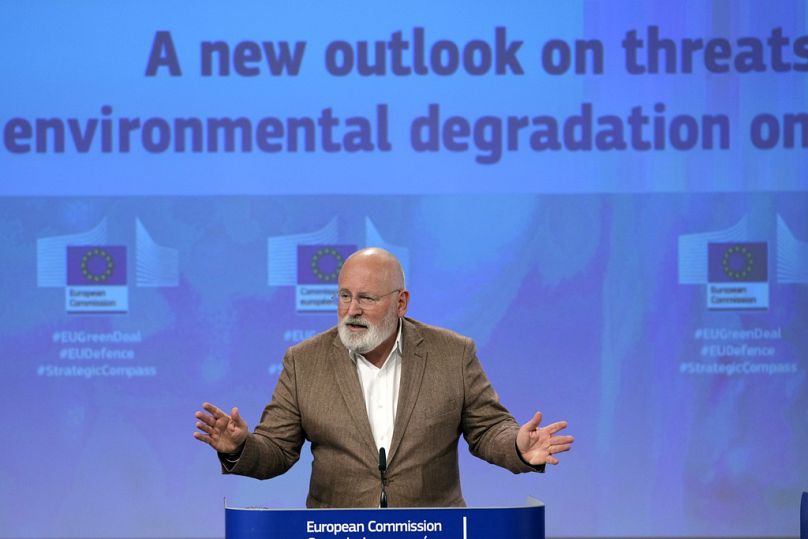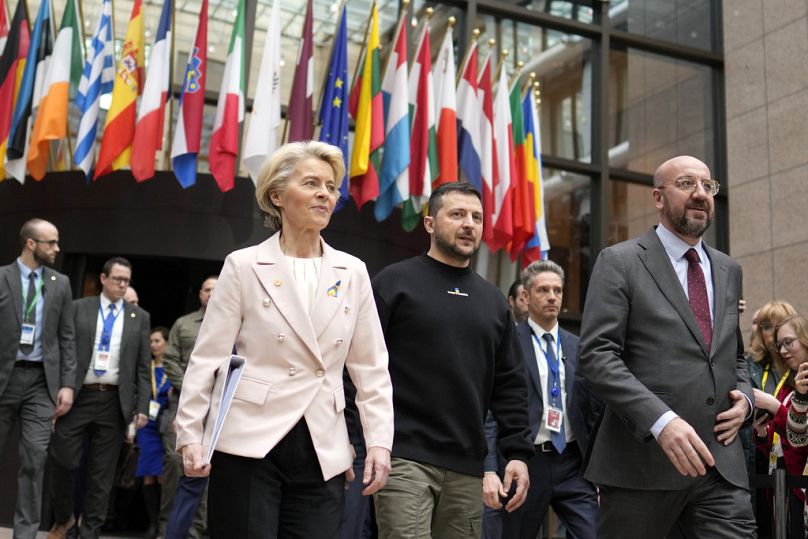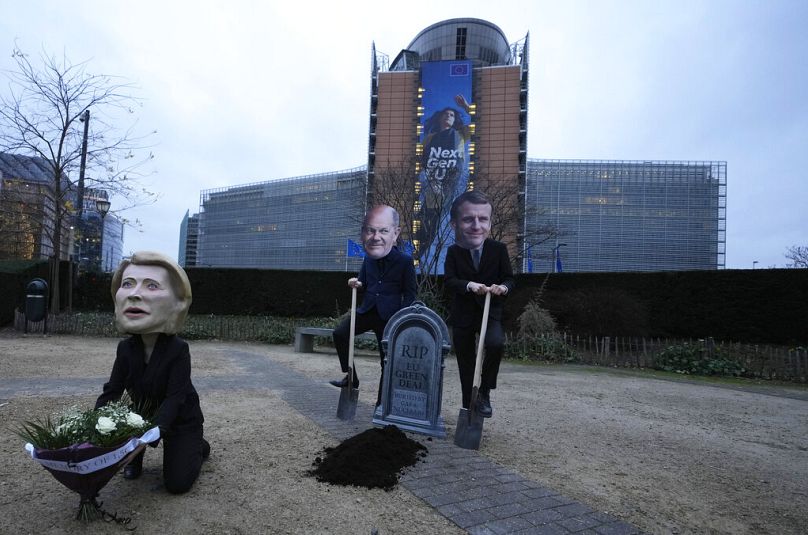As the European Commission president prepares to deliver her potentially final State of the European Union speech on Wednesday, we must look back at her legacy, Ursula Woodburn writes.
The EU has been fighting climate change for decades. But with this summer confirmed as the hottest yet globally — it's time to work with our international allies and turn up the temperature dial on climate action.
Last Friday, the United Nations released its first Global Stocktake, a process following the Paris Agreement in which countries pledged to monitor their collective progress in achieving the agreed goals.
In what the World Resources Institute has called a “truly damning report card” for global climate efforts, the key takeaway message is that we are not on track to meet the target of the Paris Agreement.
To keep global warming below 1.5 degrees Celsius, we must scale up ambition and implement clean technology solutions now.
Yet another important climate moment happened over the weekend, at the G20 summit in Delhi.
Though leaders did not conclude on a timeline for phasing out fossil fuels, European Commission president Ursula von der Leyen put forward a successful agreement to triple renewable energy capacity globally by 2030, in the run-up to COP28.
So where does that leave us in Europe?
Changes to the roster in VDL's final year
Ahead of the EU elections next year, the controversial Nature Restoration Law just made it through parliament in July.
Frans Timmermans has led the EU’s Green Deal and climate policy since 2019, launching one of the broadest set of climate laws the world has seen.
But now the climate champion has resigned, and the bloc's competition torchbearer Margrethe Vestager has gone on leave to pursue the presidency of the European Investment Bank.
Von der Leyen acted decisively to deal with the changes in the European Commission college — although questions remain over how this could impact her final year.
She swiftly assigned the new Vice-President position to Slovak socialist Maroš Šefčovič, who is an experienced operator on the wider energy issues — and from whom we will need robust support for the Green Deal.
She has also handed the climate portfolio to former Dutch Foreign Minister and conservative Woepke Hoesktra.
But as Ursula von der Leyen prepares to deliver her potentially final State of the European Union speech on Wednesday, we must look back at her legacy.
Not all is so rosy despite strong moves amid crises
Her flagship initiative, the European Green Deal, with the concept of Competitive Sustainability at its core, has proved resilient in the face of multiple crises.
As a result, businesses around Europe are acting to reduce their own emissions, they are talking to their supply chains and considering what they need to invest in in the future.
The majority have been unwavering in their support — even despite a series of crises which shook the EU to its very core.
In the wake of the COVID-19 pandemic, the EU focused on greening our economic recovery. The plan, named NextGenerationEU, invested €806.9 billion to make Europe greener, more digital and more resilient.
Following Russia’s war in Ukraine, the bloc then stepped up its deployment of renewable energy and efficiency measures to respond to the energy crisis.
This sent a strong signal to businesses that green growth was the best way to guarantee long-term resilience in future.
However, it’s not all so rosy.
International developments and decisions taken in the US and China continue to complicate investment decisions. The door to new investment in fossil fuels remains firmly open and nature restoration has not yet been sufficiently addressed.
So how will businesses be impacted?
The 2040 target should be firmly addressed
In a period where some — like Belgian Prime Minister Alexander de Croo — are calling for a regulatory "pause", policymakers and businesses need to keep their sleeves rolled up to overcome any obstacles in their way.
The climate crisis is not slowing down. Taking action to tackle it is not an option, we must instead ensure that the transition towards a European economy that prioritises people, nature and climate goes ahead.
At this unstable time, businesses can make a difference by calling for a clear, green policy direction (at the depth, breadth and scale needed) to help them plan and unlock necessary investments.
What’s more, we are looking for the EU — and von der Leyen this week — to firmly address the 2040 target.
From a business perspective, this means setting a climate target of reducing greenhouse gas emissions in the bloc by at least 90% by 2040.
A few years ago this target might have seemed impossible.
But action taken already by policymakers and businesses has demonstrated that such ambition is within reach — providing carbon removals are limited to no more than 8-10%.
Europe must act to stay in the running
Separate targets should be set for nature-based carbon removal and technological carbon removal — to improve transparency and accountability.
The long-term future of Europe is rooted in economic prosperity, with businesses that have successfully invested in sustainability staying competitive globally.
Recent reports have shown that we are in a global race to the top on zero carbon technologies, and Europe must act to stay in the running.
All of us will need to pull together to build on the transformation enabled by the Green Deal, including the next EU institutions.
Who the 14th President of the European Commission will be still hangs in the balance. In the meantime, the EU must heat up its resolve and act now.
Ursula Woodburn is Director of the Cambridge Institute for Sustainability Leadership at the Europe office, driving corporate support for a climate-neutral, nature-positive and sustainable economy.
At Euronews, we believe all views matter. Contact us at view@euronews.com to send pitches or submissions and be part of the conversation.














